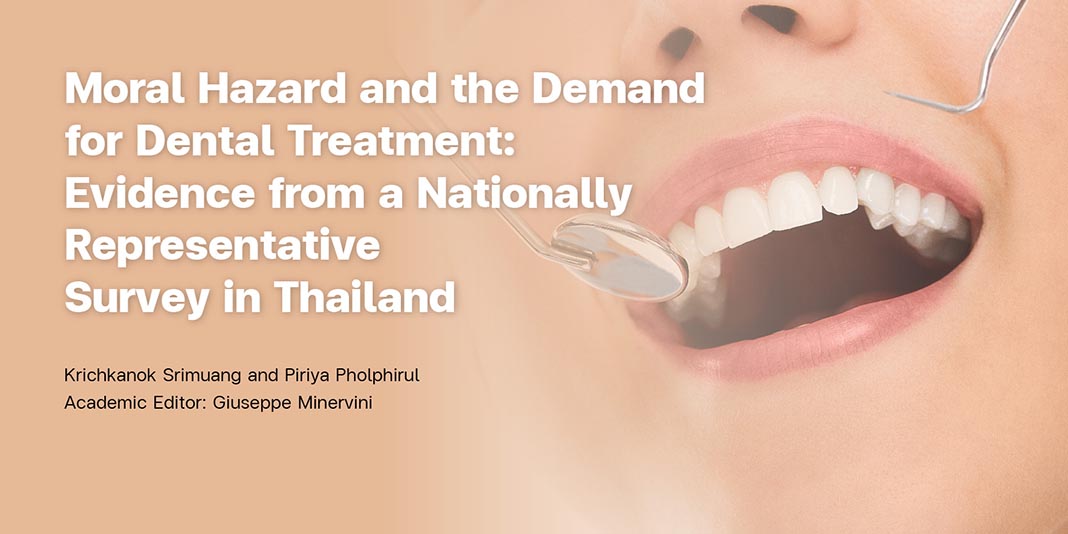Moral Hazard and the Demand for Dental Treatment: Evidence from a Nationally Representative Survey in Thailand
- Details
- SDGS - Research

Moral Hazard and the Demand for Dental Treatment: Evidence from a Nationally Representative Survey in Thailand
Professor Dr. Piriya Pholphirul (School of Development Economics, National Institute of Development Administration), Krichkanok Srimuang, Giuseppe Minervini
Even though there are examples in the health economics literature of evidence investigating moral hazard in health insurance provided by general healthcare services, studies of moral hazard in dental care in developing countries are still scarce, especially when it comes to nationally representative data on dental care demand and expenditure. Using Thailand as a case study, we investigate here whether moral hazard in dental insurance exists and, if so, the extent to which it affects different dental insurance on the demand for dental care in developing countries.
We use a nationally representative sample of 269,206 individuals to quantify the impacts of dental care insurance on four sets of dependent variables describing demand for dental care. They are: (i) dental care utilization, (ii) numbers of dental care visits, (iii) dental care expenditure, and (iv) each type of dental care. Our probit and tobit estimations show that there is no evidence of the existence of moral hazard in terms of dental care utilization and dental care expenditure. However, there is a moral hazard of dental insurance existence on the number of dental care visits and type of dental care. People with generous dental benefits coverage tend to use preventive dental treatments along with necessary treatment but also use costly restorative dental treatments more than do those with lower coverage. It can thus be concluded that, in the case of developing countries, dental care insurance is found to increase the use of dental care, especially for preventive care.
วารสาร International Journal of Dentistry 2022-08-17
อ่านเพิ่มเติมได้ที่ https://doi.org/10.1155/2022/2259038